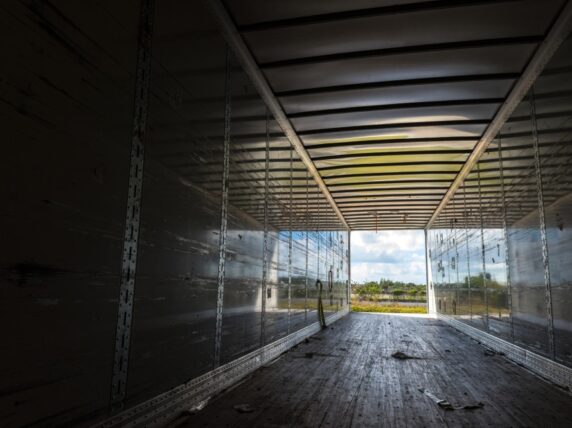How do we build equitable partnerships with diaspora communities?
There is increasing interest in international NGOs partnering with diasporas.
Remittances data give an insight into how critical diasporas are in the development and humanitarian spaces. In 2019, donations from diaspora to origin countries were estimated at 551 billion US Dollars, dwarfing the 2019 total of 152.8 billion US Dollars in foreign aid from governments.
But diasporas are engaged in different ways beyond funding. For example, diaspora medical professionals located at the pandemic’s initial epicentre in Europe and North America shared their experiences with their colleagues in origin countries before Covid-19 affected them. Prof. Gibril Faal gives perspective on the diversity of engagements, outlining five key components to “diaspora capital” : financial, political, social, intellectual and time.
However, everyone is operating in silos. There are numerous opportunities for collaboration and potential synergies between international organisations and diasporas to enhance humanitarian response. Also, there is a need to listen to diaspora voices and understand their needs. There are real opportunities to magnify the human capital and financial resources that the diaspora contribute to addressing humanitarian crises, whether in the UK or internationally.
Challenges and power imbalances
Despite the best of intentions, funding trends are geared towards consolidating rather than shifting current power structures. The reality is diaspora organisations, which are often under-resourced, are expected to deliver high impact change, on shoestring budgets.
With funds drying up, large organisations are more likely to withstand the reduced funding than medium and smaller organisations, particularly those led by Black, Asian and Minority Ethnic (BAME)/People of Colour, facing closure. In most of these interactions, the direction is always set by the large-scale funders who reach out to diaspora organisations precisely because of their expertise, experience, social capital and knowledge.
Subscribe to our newsletter
Our weekly email newsletter, Network News, is an indispensable weekly digest of the latest updates on funding, jobs, resources, news and learning opportunities in the international development sector.
Get Network NewsIt has been refreshing to see initiatives springing up on diaspora engagement, such as DEMAC and EUDiF, and the British Red Cross. These initiatives are the results of decades of work and research on diasporas by organisations such as AFFORD. However, these should only be the start towards building equitable partnerships that support locally-led development.
The Black Lives Matters movement has started meaningful discussions about racism and privilege at the UN and INGO sector, with various organisations, including Save the Children-UK, pledging to listen more and take action. And over the past couple of months, many organisations are developing diversity and inclusion strategies.
Yet, we continue to see international organisations failing to reflect the communities they aim to serve, and the need for action and not just words. There is no denying that diaspora communities are woefully underrepresented in most senior leadership roles at these organisations.
Another challenge is diasporas are seen as sources of “aid” or as “cash machines” to finance international organisations. If you work with diasporas or have projects focused on diasporas, it is essential to ensure you have diaspora organisations as partners. Having “validation” of your work through workshops and similar discussions is not a partnership. It is critical to build trust towards working together on equal footing.
Building trust and equitable relations is not a simple process, and each organisation has its unique added value. However, we collectively need to be honest and call out those invested in maintaining the status quo. We have to look inwards and ask as a sector, where does the problem lie? And why does it persist?
Those of us who have been at both sides of the table as part of large-scale NGOs and small-scale diaspora organisations, know that funders are maintaining the status quo by making criteria to access funding so insurmountable. They continue to give generous grants to the large scale, well-resourced institutions, while diaspora organisations are sub-contracted with small funds for giving ideas, validation and passion. Government donors are risk averse and have limited interaction with diasporas, often not willing to engage. Also, they want to see economies of scale and are wary of the costs of managing smaller amounts of funding to diaspora organisations.
How do we meaningfully engage with diasporas?
The fundamental ethos of diaspora engagement needs to be transformed: organisations need to work with diaspora as more equal partners, share funds, trust, and responsibilities based on the skill sets, experience, expertise, and access that each bring. Seeing beyond the “traditional” skill sets and embracing the added value of lived experiences enhances impact.
There is a huge unexplored potential for innovation through collaboration between diasporas and “traditional” development and humanitarian actors. It is simple on the surface, but is a sophisticated solution to complex and deeply rooted issues, including colonial power dynamics of “us” and “them”.
The current pandemic has exacerbated these challenges and it’s clear that “business as usual” is no longer fit for purpose. However, there are opportunities to better engage with diasporas:
- Treat diasporas as equal partners: Diaspora engagement should be two-way, with partnerships built on foundations of trust, communication, respect and reciprocity. Seek to build a long-lasting partnership with diaspora organisations.
- Consider multigenerational engagement: Ensure engagement is not limited to the first-generation diaspora but also considers the second and subsequent generations’ needs and ambitions.
- Protect vulnerable migrant and diaspora communities: Recognise the diversity of diaspora communities, whether based on gender, age, income, education, and origin countries. Some can provide assistance, whether financial or based on skills, but some are also vulnerable.
- Embrace evidence-based engagement: There is a need for continued action research as diasporas are not static, and their motivations to engage and how varies considerably, such as origin and settlement country’s context.
Category
News & Views



